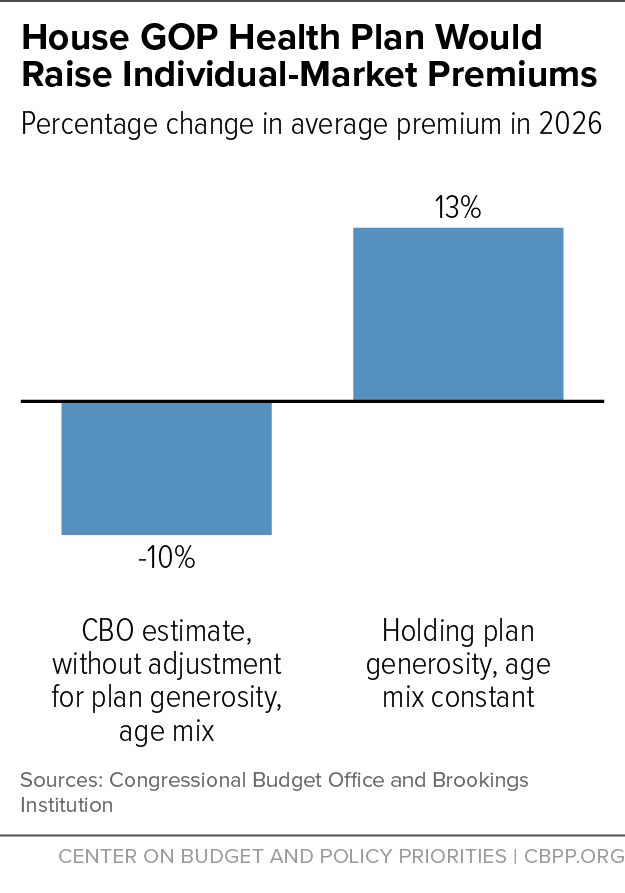BEYOND THE NUMBERS
Speaker Paul Ryan says the House Republican health bill would lower premiums by 10 percent, but that’s highly misleading. It doesn’t mean that the price of your insurance plan would be lower, as Ryan implies. In fact, people who wanted to keep the insurance plan that they have would face premium increases averaging 13 percent, according to a Brookings Institution analysis.
Ryan bases his assertion on the Congressional Budget Office (CBO) estimate that the American Health Care Act (AHCA) would reduce average premiums in the individual health insurance market (not counting premium subsidies). But that’s not the relevant comparison, since the ACHA would significantly change the pool of people who purchase insurance and the kind of insurance they buy. The bill would shift the composition of the market toward younger, healthier people and less generous plans — both of which would reduce average premiums.
The House bill would eliminate the mandate that most individuals maintain health coverage (replacing it with a counterproductive continuous coverage provision). As a result, fewer people would buy insurance, and those who didn’t buy coverage would tend to be healthier than average. Together with skimpier tax credits, this would drive up after-tax premiums, pricing some people out of the market entirely and causing others to buy cheaper, less generous plans with higher cost-sharing.
The House bill would also allow insurers to charge older people five times more than younger ones, but the new tax credit would vary by just two to one. As a result of this difference, more young people and fewer older people would buy insurance than under current law. And health coverage is less expensive at younger ages than older ones.
The Brookings analysts estimated how much the ACHA would increase average health insurance premiums for a given generosity of coverage and a fixed population of enrollees. (See figure.) CBO, by contrast, did not make these adjustments when it estimated that average premiums would drop by 10 percent. As it turns out, holding current generosity of coverage constant would reduce CBO’s 10 percent figure by 8 percentage points, and holding the current age distribution of enrollees constant would reduce it by 14 percentage points. Taking both factors into account, the House health bill would increase average premiums by about 13 percent.
That’s what Speaker Ryan isn’t telling you.

